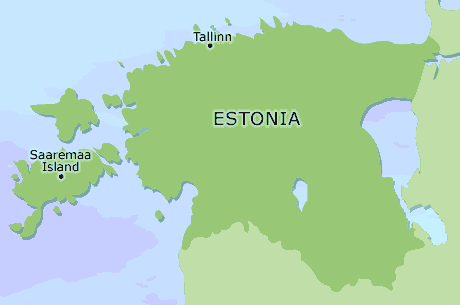Russia gives Estonia a pair of dead donkey's ears instead of territory
The Russian administration prefers to ignore continuing territorial claims from the former Soviet states

It seems that Russia and Estonia will not be able to regulate the boundary dispute in the nearest future. Russia's Ministry for Foreign Affairs released a statement Wednesday, which said that it would not be possible to ratify the border agreement with the former Soviet republic of Estonia because of amendments introduced by the Estonian parliament. 
The Estonian opposition demanded during the discussion of the Russian-Estonian agreement the USSR's “occupation” of Estonia should be included in the text of the agreement in 1940-1991. It is noteworthy that the pro-governmental bloc in the Estonian parliament was ready to ratify the original version of the document, which was signed in Moscow on May 18th by Russian and Estonian ministers for foreign affairs. Sergei Lavrov, Russia's Minister for Foreign Affairs, said that there should not be any amendments introduced to the text of the document. The Estonian parliament, however, failed to collect the necessary number of votes for the ratification of the border agreement. As a result, Estonian opposition parties included an indirect mentioning of the Soviet annexation and the long-standing occupation of Estonia. Estonian deputies also specified that the amicable agreement of 1920, which was concluded between Estonia and Soviet Russia, was still in effect. The contract stipulates that Estonia has a right for certain territories of the Russian Federation, which were returned to Russia after the end of WWII.
Estonian authorities believe that that approved amendments to the Russian-Estonian territorial agreement do not imply Estonia's intention to set forth territorial claims to Russia in the future. The chairman of the foreign affairs committee of the Estonian government, Enn Eesmaa, told Interfax that the parliament of Estonia was forced to make such a decision merely to obtain the number of votes that were needed for the ratification of the document. It is noteworthy that Estonian President Arnold Ruutel signed a decree Wednesday enacting the law about the ratification of border agreements with Russia.
Russian politicians did not wish to care for Estonia's inner political problems. As it can be seen from the statement of the Russian Ministry for Foreign Affairs, the border agreement will not be submitted for ratification to the Russian parliament. The Russian administration believes that Estonia may set forth its territorial claims to Russia easily. To crown it all, Estonia changed the text of the document despite the previously claimed obligation. It brings up the idea that the government of Estonia may break its promises in the future as well.
The three Baltic states, Estonia, Latvia and Lithuania, have been using these two words, “occupation” and “annexation” on a highly frequent basis recently. The words have already entered the vocabulary of international forums and any discussions pertaining to the problems of relations with Russia. No one intends to deprive the Baltic states of their right to talk so. One should bear in mind the fact that Estonia's, Latvia's and Lithuania's borders with Russia comprise the outer boundary of the European Union. The latter does not at all wish to deal with such problems, to say the least. The Baltic states became EU members for political reasons, although the membership would be denied for the countries with territorial and border problems earlier.
The Russian president made a curious remark answering a question about Latvia's claims for a certain territory of the Pskov region of Russia: “They will most likely get dead donkey's ears instead.” Estonia has already received a pair.
Subscribe to Pravda.Ru Telegram channel, Facebook, RSS!


